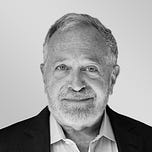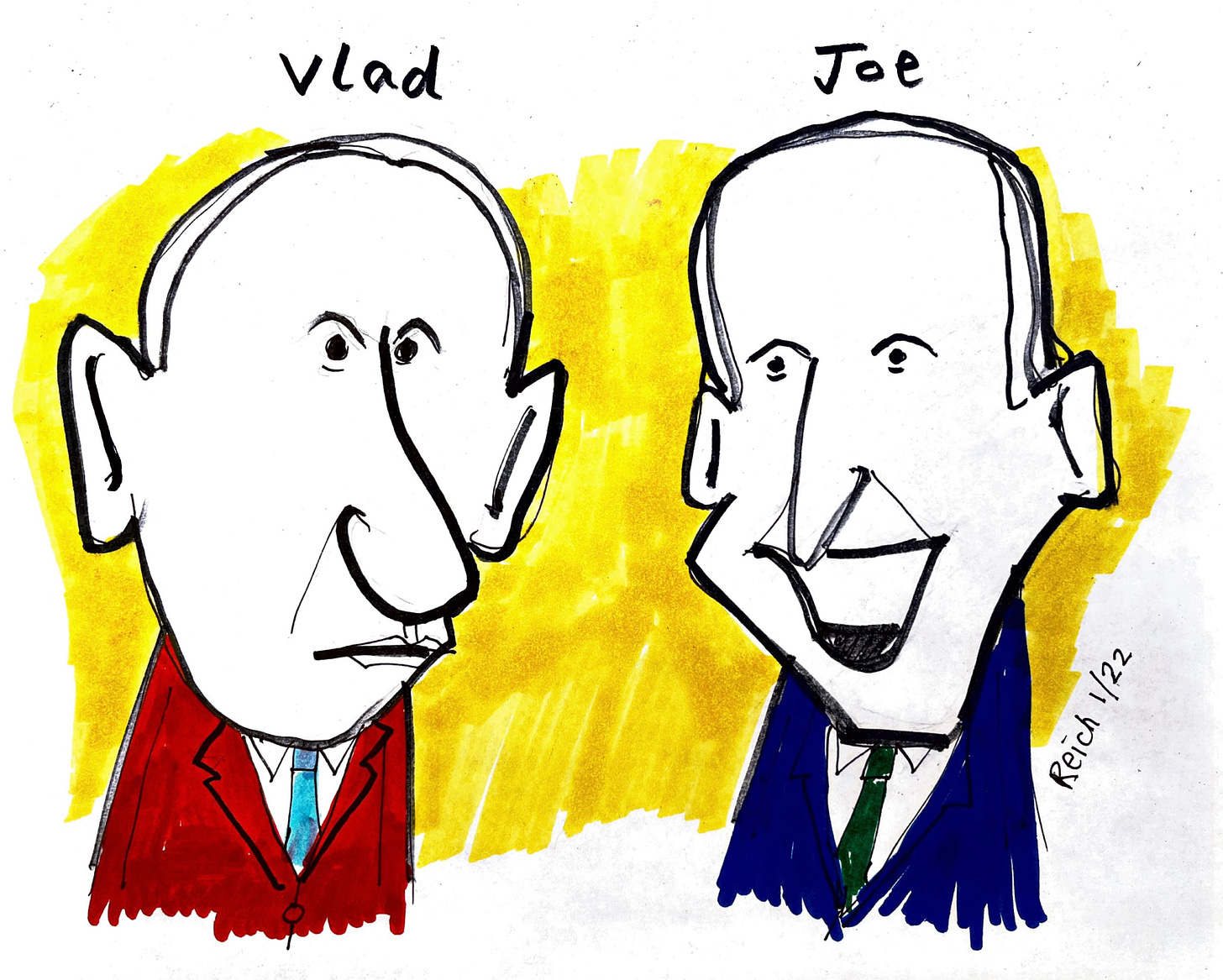As if we didn’t have enough to worry about, the leaders of the world’s two largest nuclear-armed nations are now engaged in what appear to be preparations for war.
Vladimir Putin is amassing hundreds of thousands of troops on three sides of Ukraine’s border with Russia. He’s also preparing live-fire naval exercises around the world. And he’s suggesting he’ll ship hypersonic missiles to Venezuela and Cuba, aimed at the United States.
Joe Biden is about to deploy thousands of American troops, along with warships and aircraft, to NATO allies in the Baltic and Eastern Europe. He has ordered family members of the U.S. embassy staff to leave Ukraine. Other NATO member countries are putting their armed forces on standby alert and sending additional ships and fighter jets to Eastern Europe.
Hence the acute danger of what we’re seeing now in Washington and the Kremlin.
The mere threat of warfare often ends periods of domestic reform. World War I brought the progressive era to a screeching halt. World War II ended FDR’s New Deal. The Vietnam War put a stop to Lyndon Johnson’s Great Society. Republicans are already portraying Biden as “weak” in his response to Putin.
The possibility of war also distracts the public from failures of domestic politics, as the Spanish-American War did for President William McKinley and the wars in Afghanistan and Iraq did for George W. Bush. Hopefully, Biden’s advisors aren’t thinking this way.
Wars also legitimate huge military expenditures and giant military bureaucracies. They also create fat profits for big corporations in war industries, put lots of people to work. After all, the massive mobilization for World War II got us out of the Great Depression.
A final point of concern. Nuclear war means almost certain annihilation. That leaves ground and air as the most likely scenes of active combat. Those who have fought ground and air wars know war is hell. Yet subsequent generations tend to forget. By the eve of World War I, many in America and Britain were talking of the glories of large-scale warfare. Today, most Americans have no direct experience of war. Afghanistan and Iraq were abstractions for most of us. Vietnam has faded from our collective memory.
So this week’s Office Hours Question: Are we heading for World War III, and what can be done to prevent it?
***
Thank you for your thoughtful and insightful comments, which I’ll continue to track through the day.
Most importantly, I think, is to understand what’s on Putin’s mind and how he understands the threat that’s motivating him. I don’t think it’s just or primarily NATO. (Hungary is a NATO member, but looks remarkably like Putin’s Russia.) Nor is it capitalism (Putin has personally profited enormously from Russia’s kleptocratic capitalism).
What Putin fears most are western values, including democracy. Liberal democracy poses a direct threat to authoritarian “strongmen” like him (just as it does to Victor Orban in Hungary, just as it did Donald Trump). Putin wants to maintain the autocratic and Orthodox norms that have kept him in power by keeping Western ideology and culture far away. That’s the threat that Ukraine poses. For two centuries, Ukraine has been the leading edge of Western ideology and culture.
Putin’s means of keeping Western liberal democracy at bay isn’t just to threaten Ukraine, of course. It’s to stoke authoritarianism inside the West by fueling division and encouraging white Christian nationalism and xenophobia. In this, Trump was (and continues to be) Putin’s advanced guard.
Listen to this episode with a 7-day free trial
Subscribe to Robert Reich to listen to this post and get 7 days of free access to the full post archives.





















